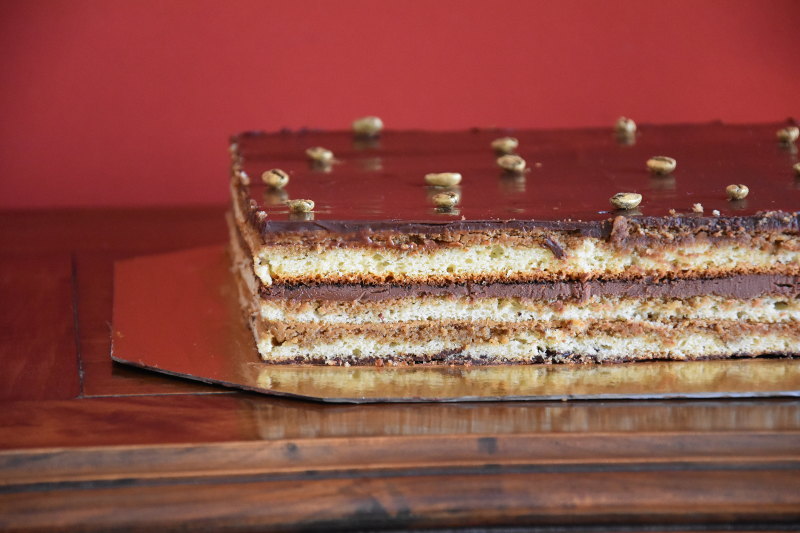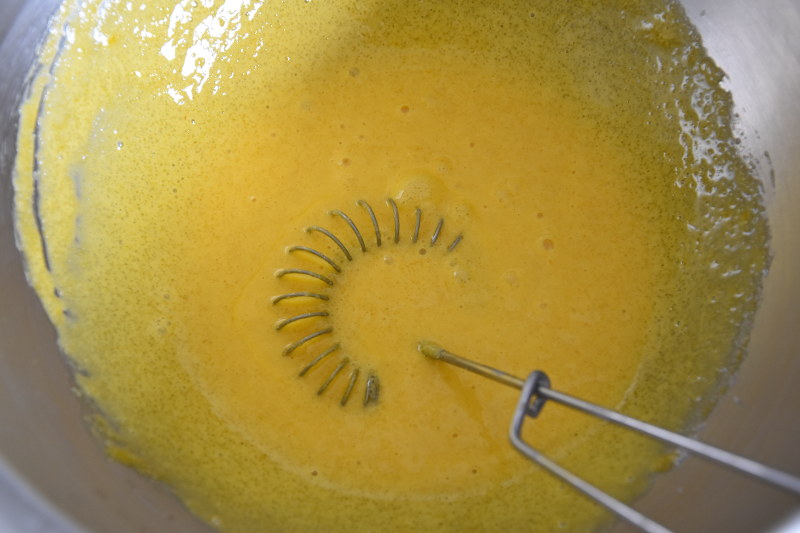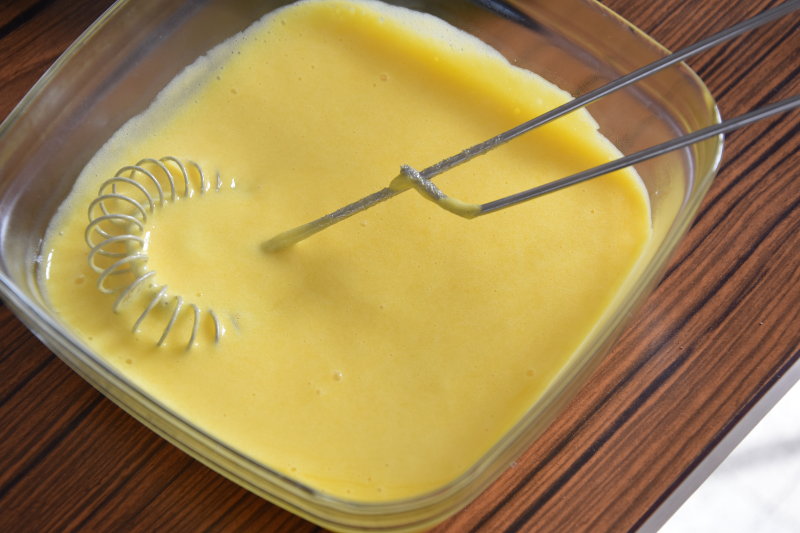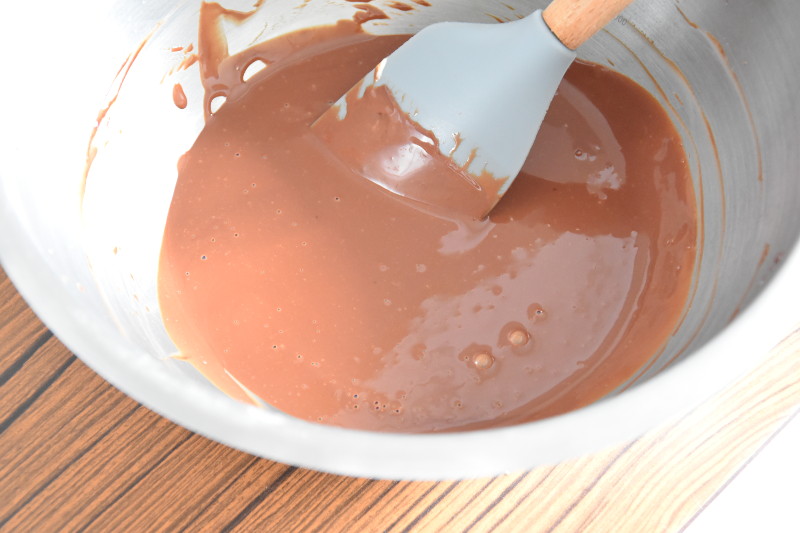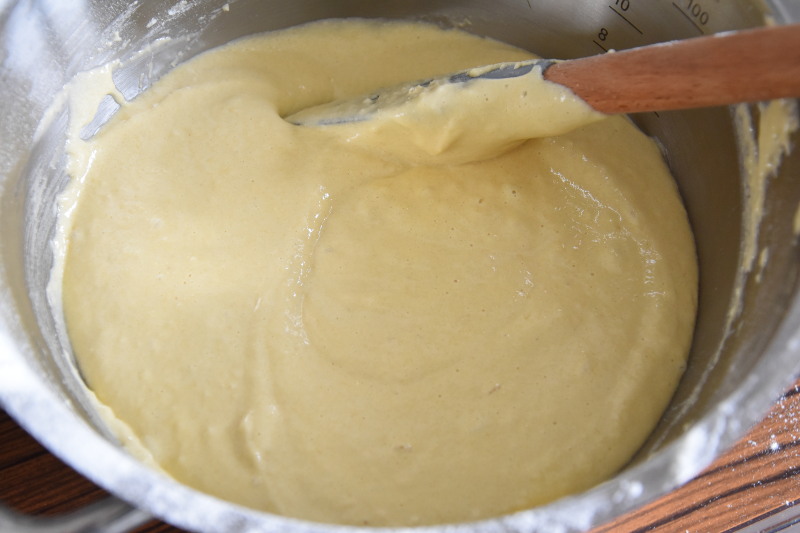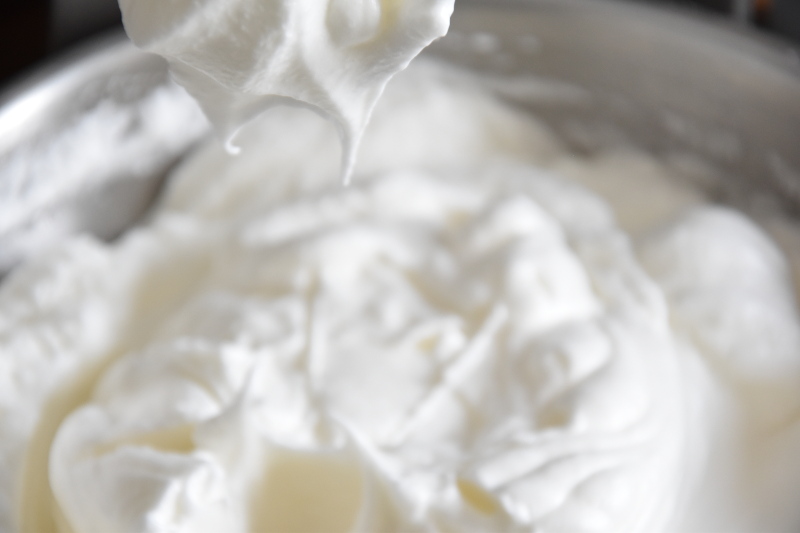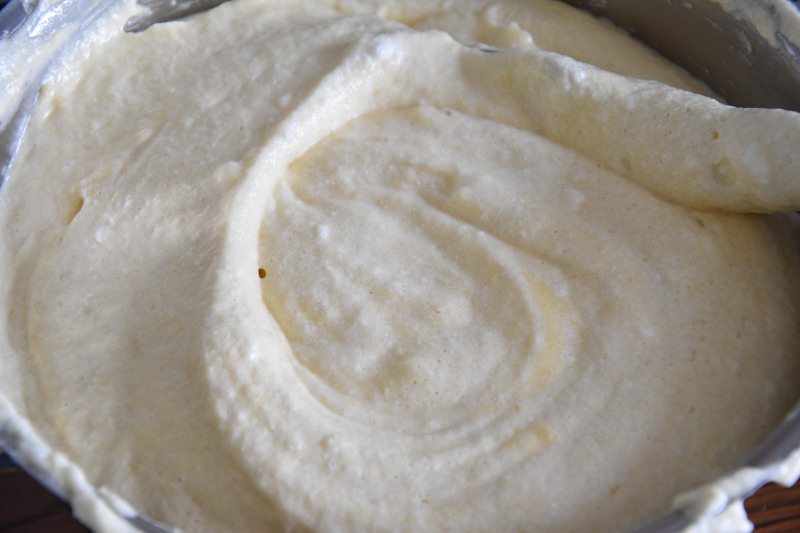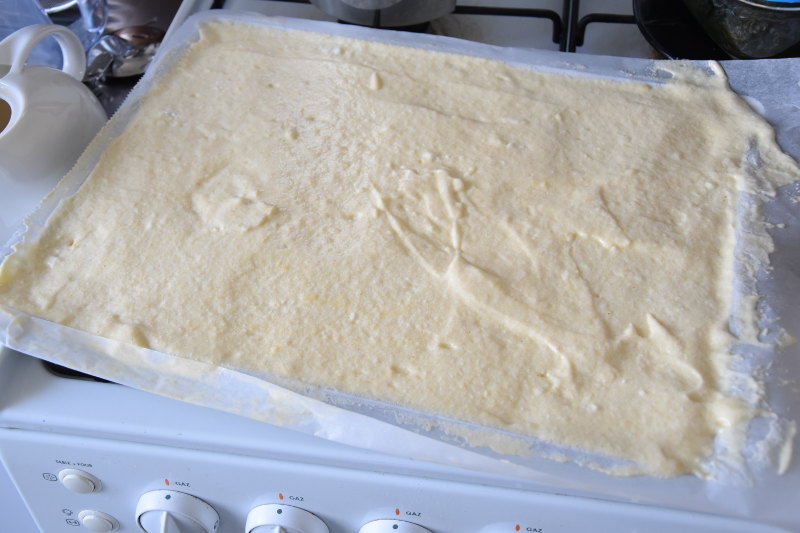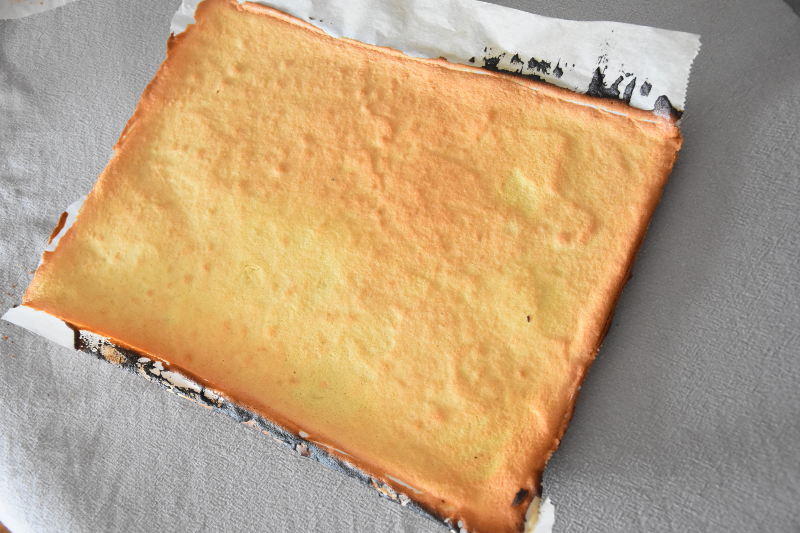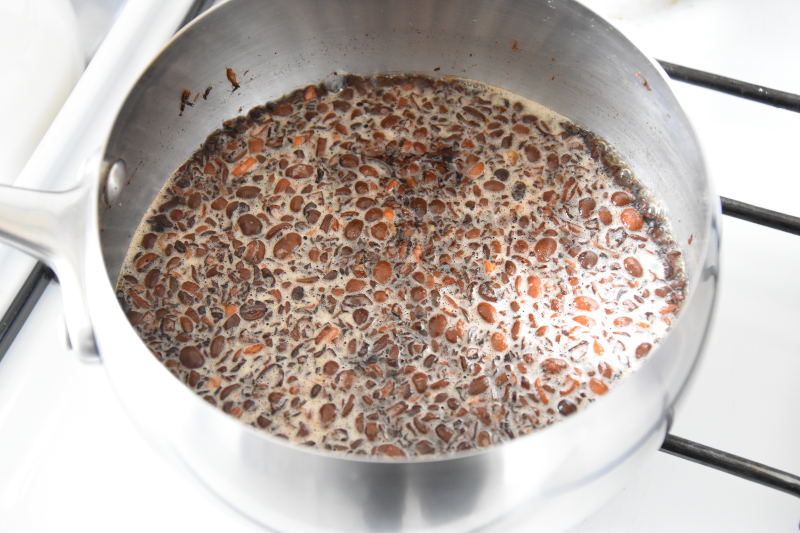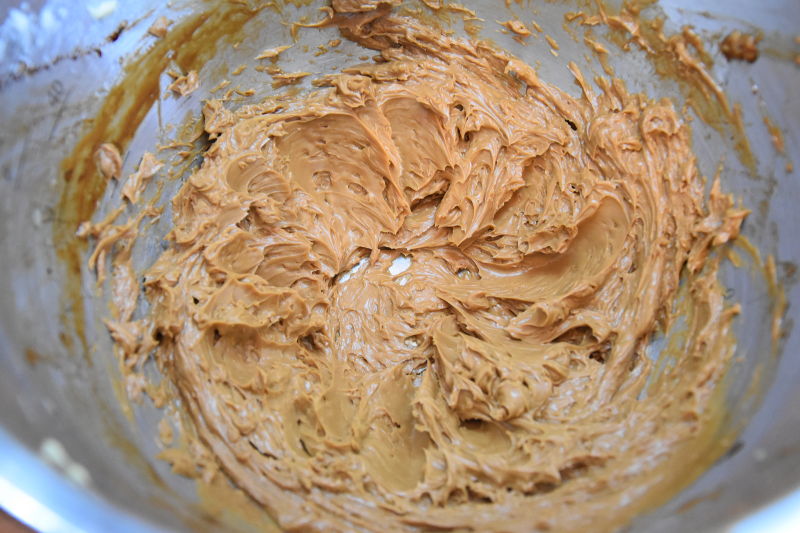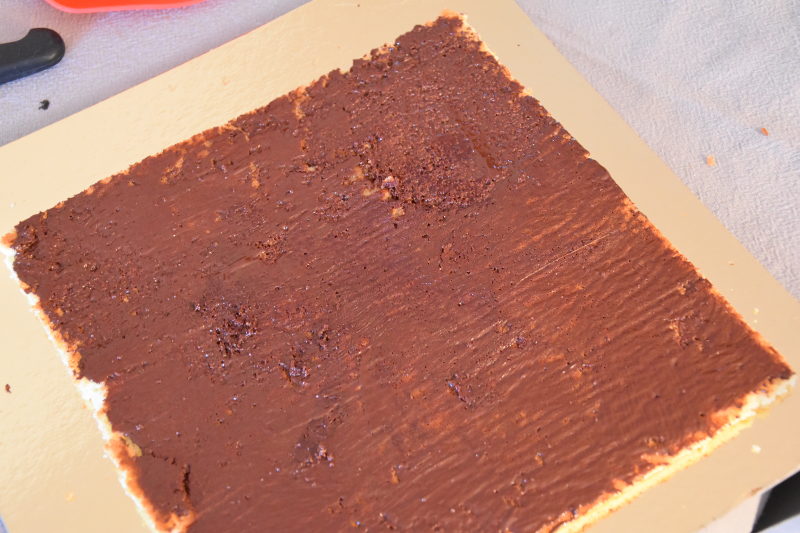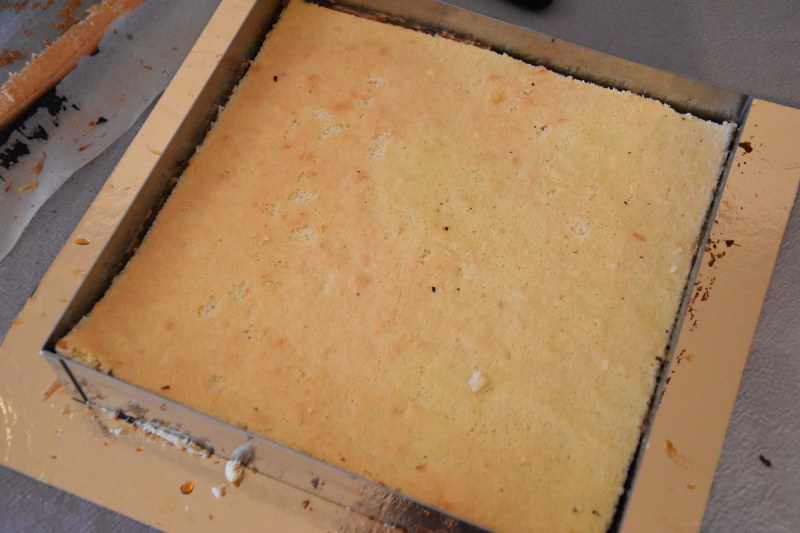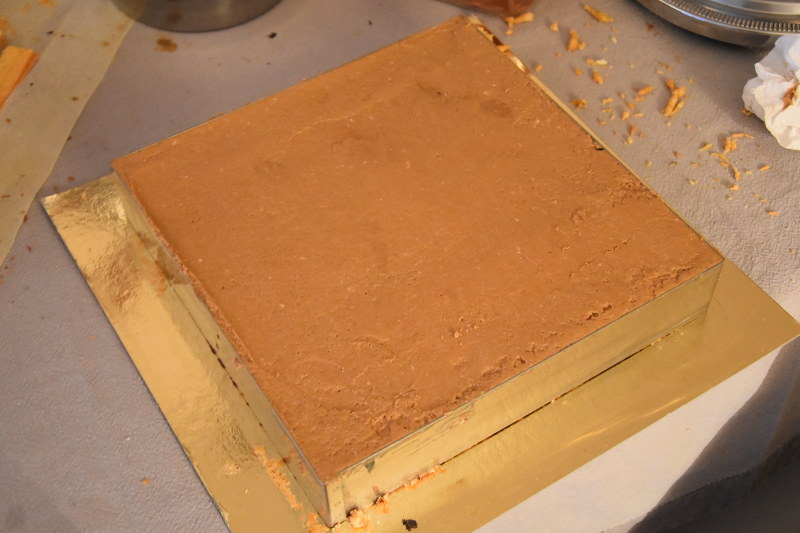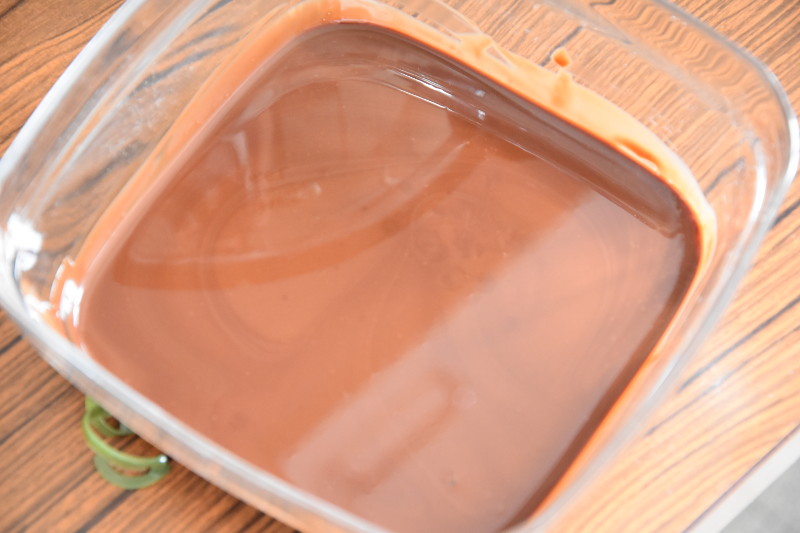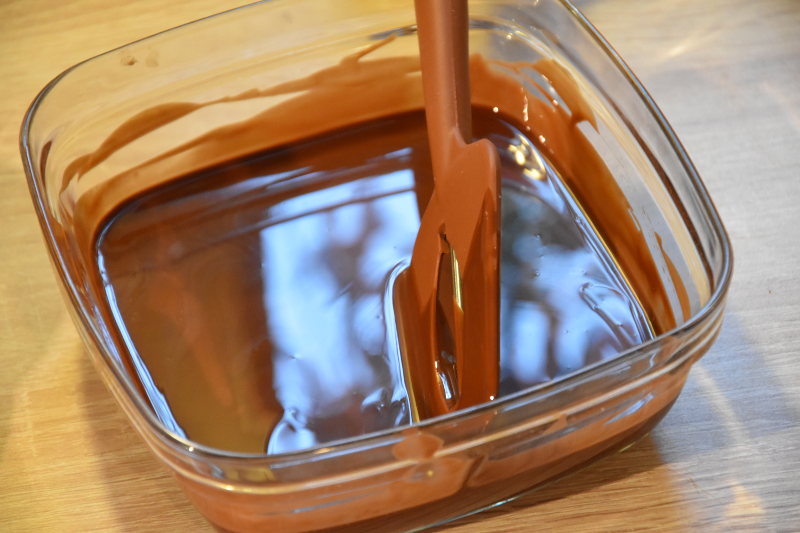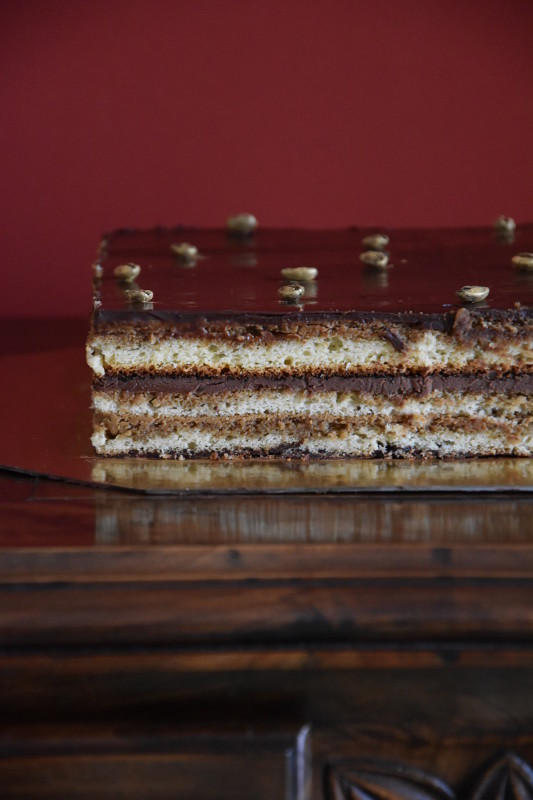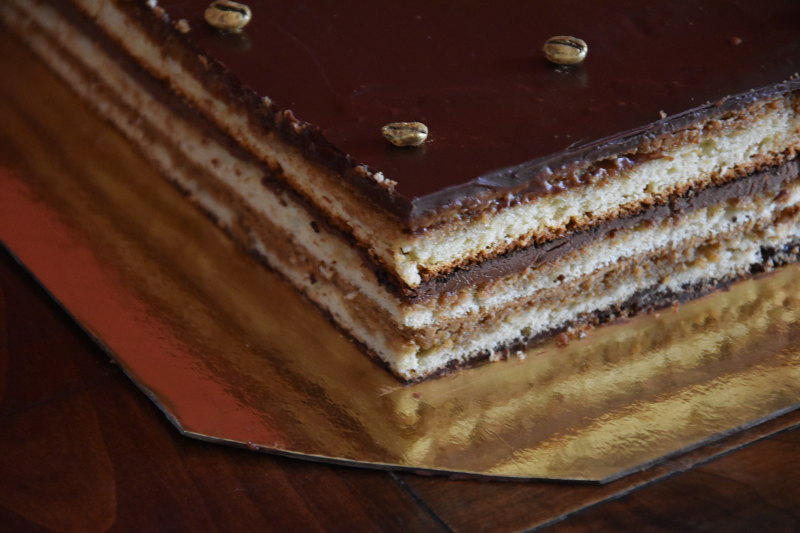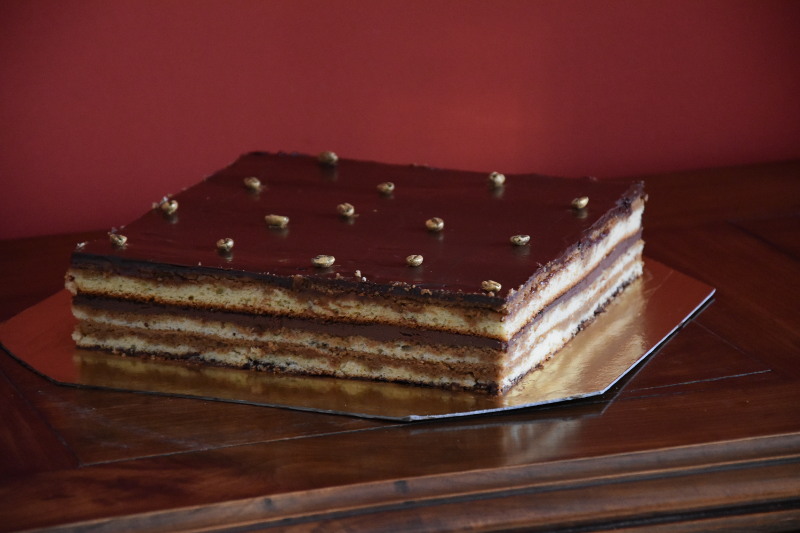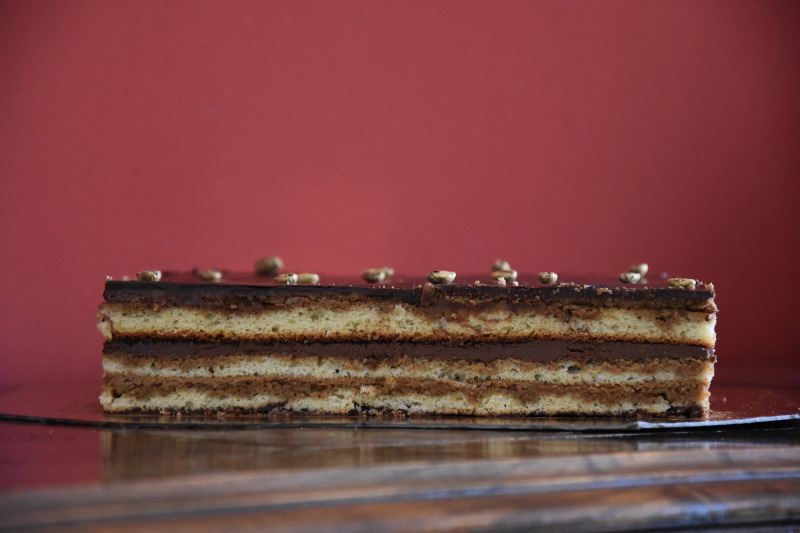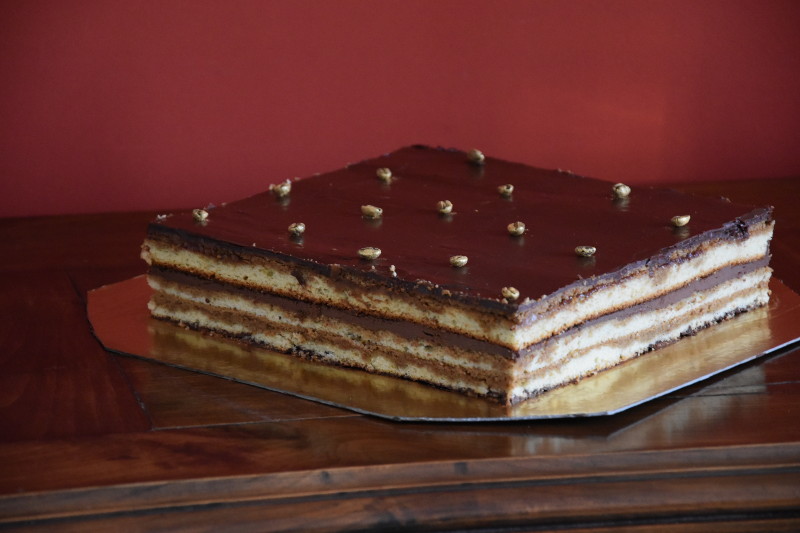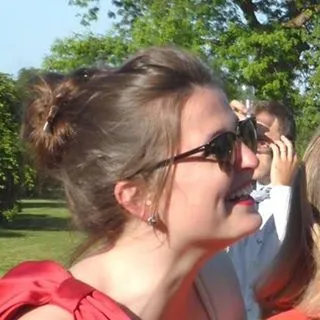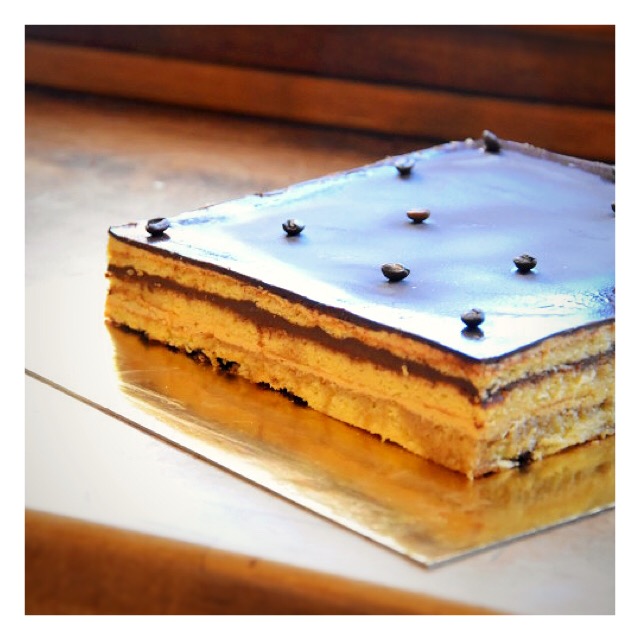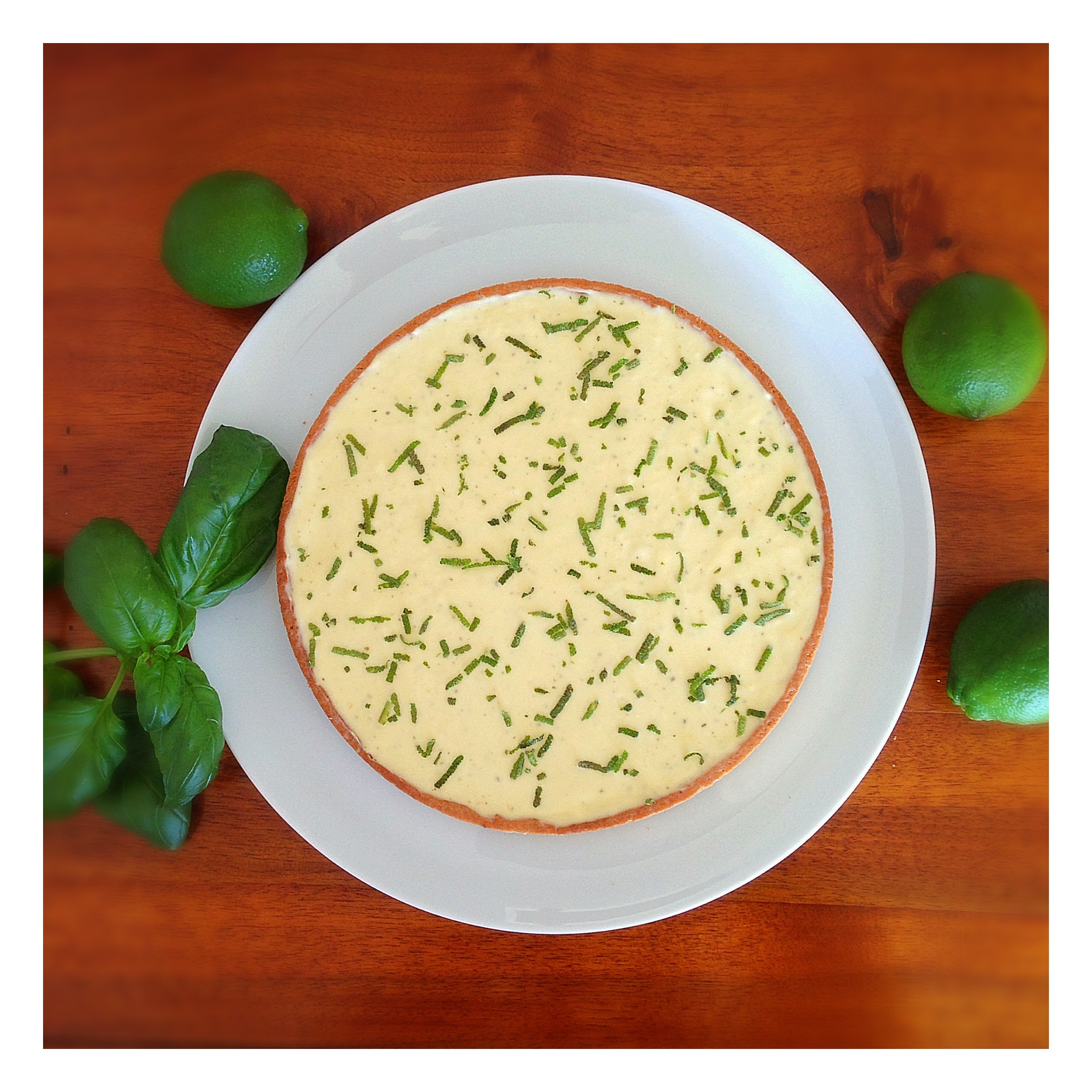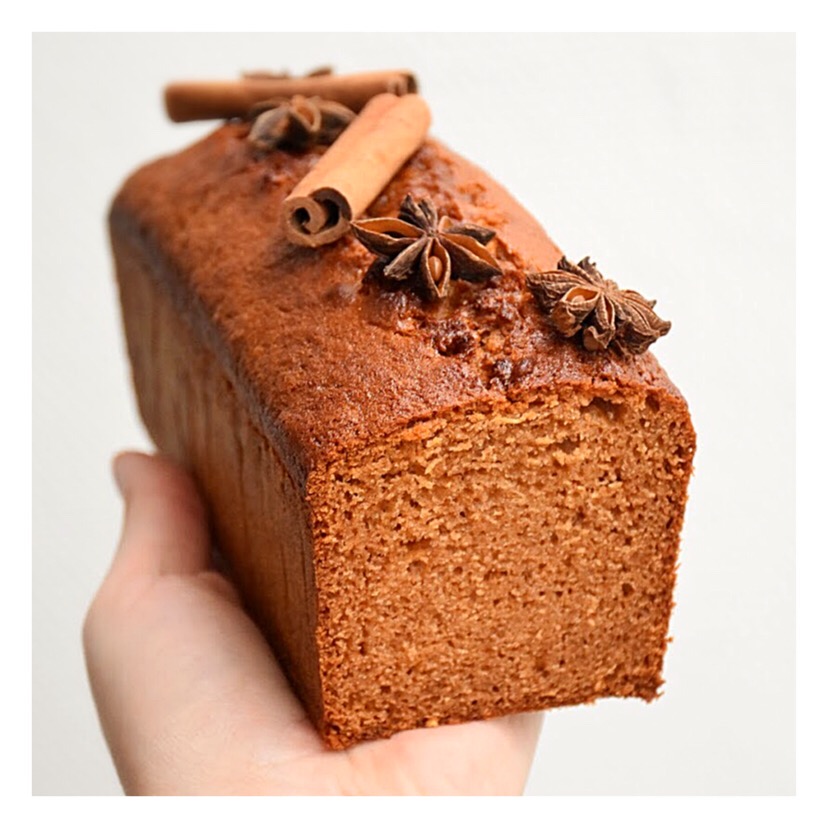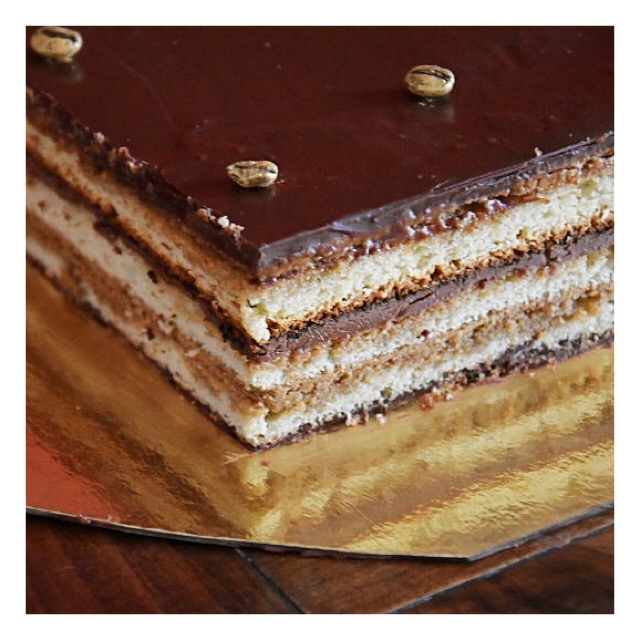Opera (Jacques Genin)
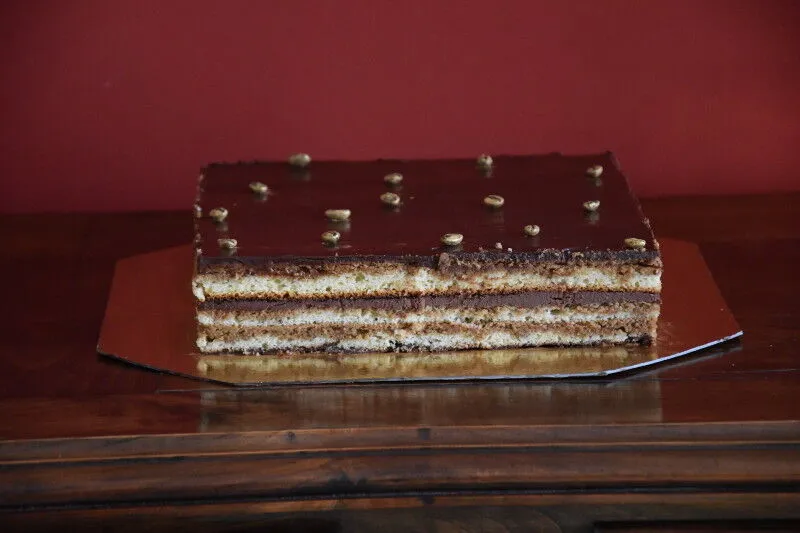
19 March 2018
Difficulty:




While browsing the book by Michel Tanguy and Jacques Genin, The Wonderful Story of Pastries, I felt inspired to create a new opera cake. Compared to my previous one, I found that this one had a more pronounced chocolate flavor than coffee, perhaps making it more balanced for those who enjoy opera cake without being fond of coffee flavor. Other than that, there’s nothing special about this recipe; it’s quite traditional, you just need to be careful during assembly to try to achieve the most even layers possible.
Preparation time: 2 to 3 hours
For a frame of 20x30 (or like me, 24x24)
The English cream (to be made the day before):
115g of whole milk
100g of sugar
75g of egg yolks (about 4 yolks)
The quantity here is a bit too large compared to what we will need for the buttercream, but it is really difficult (if not impossible) to make a smaller quantity.
Bring the milk to a boil.
Whisk the egg yolks with the sugar, then pour half of the boiling milk over the eggs while continuing to whisk.
Pour everything back into the saucepan, then cook over low heat until reaching a temperature of 83°C. Remove the cream, let it cool, then cover it with plastic wrap directly on the surface and refrigerate overnight.
The ganache (to be made the day before):
250g of liquid cream
125g of Valrhona Caraïbes chocolate (or a dark baking chocolate if unavailable)
Melt the chocolate in a double boiler. Bring the cream to a boil, then pour it in three additions over the chocolate, mixing well with a spatula after each addition. When the ganache is smooth and shiny, cover it with plastic wrap directly on the surface and let it sit at room temperature.
The Joconde biscuit:
600g of tant-pour-tant of almond powder and icing sugar
500g of eggs (about 10 whole eggs)
180g of strong flour
375g of egg whites (about 12 whites)
105g of granulated sugar
The quantity specified in the recipe is perfect for baking 3 trays of 40x30cm filled, so it is expected to have a lot of scraps. This is useful for being able to cut 3 perfect squares from the trays, but obviously, the final quantity is far too large. It’s up to you whether you prefer to reduce the quantities and bake the batter in frames, or follow the recipe and have quite a bit of scraps :-)
In the bowl of a mixer fitted with a whisk (or alternatively, in a mixing bowl with an electric whisk), place the tant-pour-tant and the whole eggs and whisk the mixture until it lightens and increases in volume (whisk for a few minutes until the mixture puffs up and whitens). Then gently add the flour using a spatula.
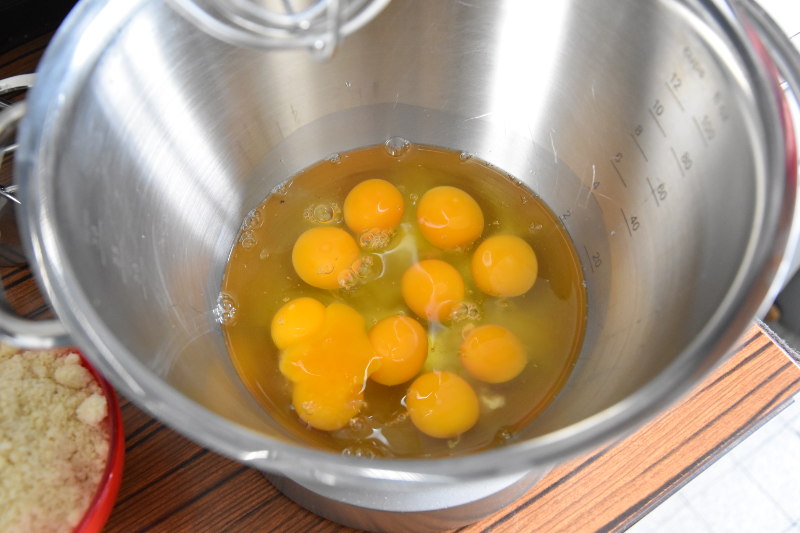
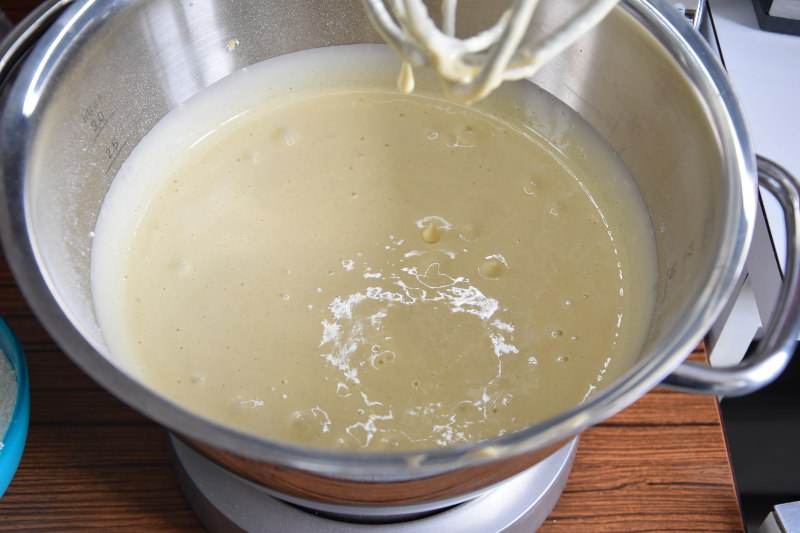
Whip the egg whites until stiff peaks form, then gradually add the sugar while continuing to beat until you achieve a firm mixture.
Gently fold the egg whites into the first mixture using the spatula.
Divide the batter into three, and spread each part onto a tray lined with parchment paper and bake for 4-5 minutes in a preheated oven at °C.
Let the biscuits cool.
The soaking syrup:
62g of coffee beans
437g of water
250g of syrup at 30°C (143g of sugar + 107g of water, brought to a boil)
43g of coffee essence
Crush the coffee beans (tip: put them in a freezer bag and hit them with a rolling pin), place them in a saucepan and add the water on top. Bring the water to a boil, then cover and let steep for 30 minutes. Strain the liquid through a fine sieve, then add the coffee essence and the 30°C syrup and refrigerate.
The Italian meringue:
94g of sugar
28g of water
50g of egg whites (about 2 whites)
Place the water and then the sugar in a saucepan and cook. When the syrup reaches a temperature of 115°C, start whipping the egg whites; when the syrup reaches 128°C, pour it over the whipped egg whites while continuing to beat at medium speed, then let it run until the meringue is warm (35-40°C).
The coffee buttercream:
75g of English cream
150g of softened butter
15g of coffee extract
180g of Italian meringue
Place the English cream in the bowl of the mixer fitted with a whisk, then beat it for 2 minutes to emulsify. Then gradually add the softened butter and the coffee extract while continuing to beat. Stop the mixer as soon as the cream is smooth and homogeneous.
Then gently fold in the Italian meringue using the spatula.
The assembly:
QS of melted dark chocolate (optional)
This was not indicated in this recipe, but I had read it in other opera cake recipes, so I decided to coat the bottom of the first biscuit.
Cut the Joconde biscuit to have 3 biscuits the size of your frame. If you wish, coat the bottom of the first with dark chocolate, then flip it over and place it in your frame. Soak it with syrup, spread half of the coffee buttercream over the entire surface, then place the second biscuit on top.
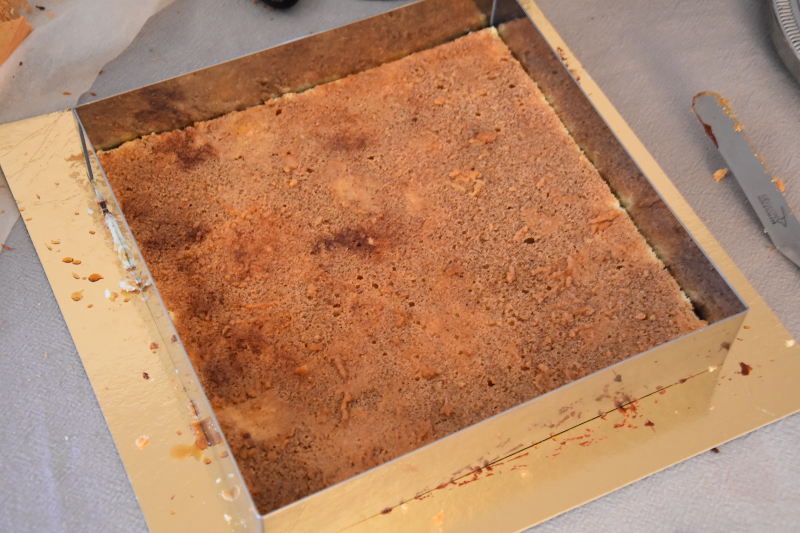
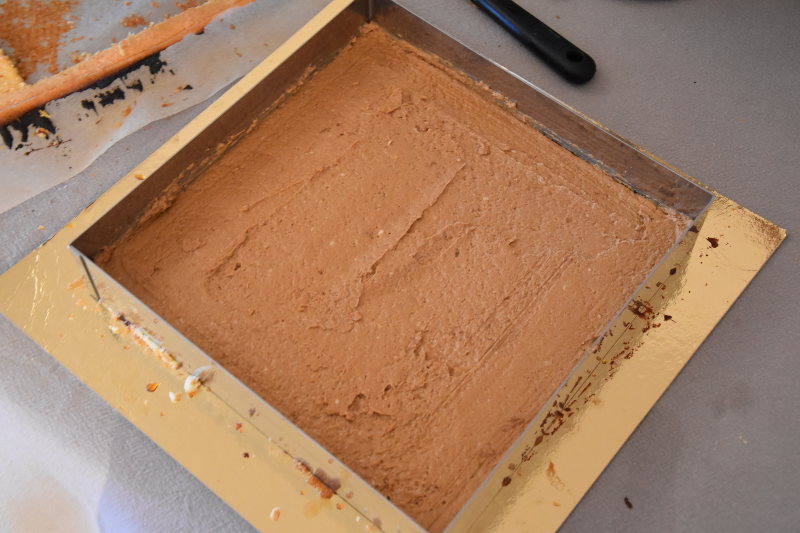
Soak it, then cover it with a layer of ganache. Add the last Joconde biscuit, soak it, and finish by adding the remaining coffee buttercream.
The book indicates to freeze the opera for 2 hours; I simply put it in the refrigerator.
The glazing:
200g of black glazing paste from Valrhona, or if like me you make it homemade:
131g of dark chocolate (Caraïbes for me)
57g of cocoa butter
12g of grape seed oil
66g of manjari 64% couverture chocolate from Valrhona (not having that, I used Caraïbes)
33g of peanut oil
If you make the glazing paste at home: melt the chocolate and cocoa butter in a double boiler, then off the heat, add the oil while stirring well. Set aside until use.
Melt the glazing paste and chocolate in a double boiler until reaching a temperature of 45°C, then incorporate the oil and strain.
Remove the opera, take off the frame, then pour the glaze and smooth it with a spatula to a thickness of 2mm. Decorate if you wish with coffee beans, then refrigerate your dessert.
Take it out 15 minutes before serving, then enjoy yourself ;-)
You may like
